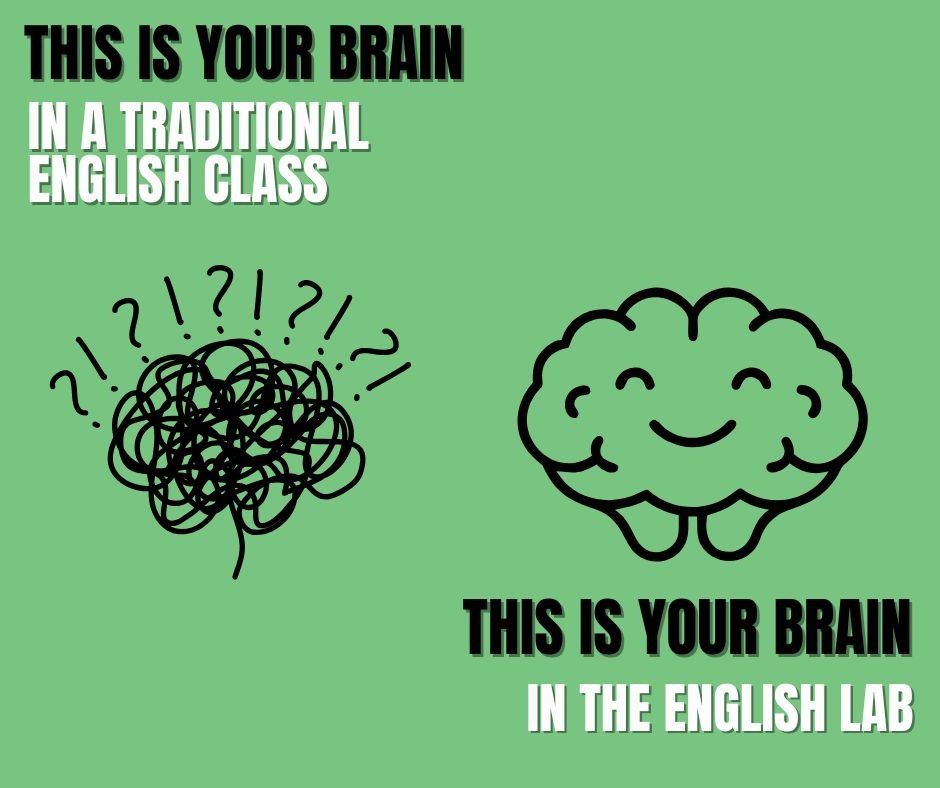Learn English Faster After 30 with This Brain Hack
Think adults can’t learn like kids? Neuroscience says otherwise. Your brain can learn English at any age
10/11/20253 min read


The Myth That Won’t Die: “Kids Learn Languages Better”
You've probably heard of or even know a kid who moved to the U.S. and started speaking English like a native speaker within months, and you think,
“Well, my brain’s too old for that.”
But here’s what neuroscience actually says:
Your adult brain isn’t worse. It’s just different.
And if you train it right, it can outperform a child’s brain in many ways.
Children have one major advantage: time and immersion.
They hear and repeat everything all day — songs, cartoons, playground chat.
You, on the other hand, have work, bills, and about 17 open tabs in your head.
The issue isn’t ability. It’s structure.
Kids learn English by accident.
Adults learn it on purpose — and that’s way more powerful.
The Science: Your Brain Still Grows
Your brain keeps learning for life — the fancy term is neuroplasticity.
Think of it like Wi-Fi. The connection might slow down sometimes,
but the network is still there, ready to reroute and upgrade.
Research shows that adults:
1. Have better focus and pattern recognition
2.Learn vocabulary faster when the context is meaningful
3.Can self-correct and apply feedback more efficiently
That means your adult brain is not broken — it’s brilliantly efficient.
What’s missing isn’t capacity; it’s the right kind of practice.
The kind that matches how your grown-up brain actually learns: through purpose, emotion, and problem-solving.
Why “Study More” Doesn’t Work
More input doesn’t mean more learning.
Watching English feeds your brain.
Using English trains it.
That’s called active recall — remembering without help.
It’s uncomfortable, yes, but it’s the golden zone for neuroplasticity.
When you only watch YouTube or memorize flashcards, you’re feeding your brain.
When you use what you know, even with mistakes, you’re training your brain.
Think of it like going to the gym:
Watching fitness videos doesn’t give you abs.
Neither does saving English worksheets or Instagram posts.
You have to train — and in English, that means speak, listen, respond, and repeat under pressure.
What is Perfect English?
At Next Level English, we break down communication into two parts:
🌀 Fluency You speak and think faster in English
⚙️ Accuracy You use correct grammar and have a decent vocabulary
Fluency alone can make you sloppy. Accuracy alone can make you slow.
You are proficient in English when you have both.
Fluency grows when you use English often and focus on flow, not perfection. Accuracy grows when you notice and fix mistakes, and repeat with awareness.
How to Train Like a Brain Scientist (Without a PhD)
Here’s how to turn science into daily practice:
1. Make English Your Playground, Not a Lesson
Don’t just “take classes,” find teachers who teach through play.
We call it "labs." Labs are for trying, failing, laughing, and trying again.
They build neural connections through emotion + repetition.
2. Keep Practice Short and Smart
15–25 minutes of micro-practice a day is enough.
Your neurons need breaks to build strength.
More study time doesn’t mean more memory — just more burnout. But short daily practice that's fun keep you coming back and builds a habit.
3. Forget Replays — Do It Live
Your brain learns from doing, not watching.
If you just watch the trainer at the gym lift weights, it doesn't make you fitter.
That’s why our Sunday live labs don’t have replays.
It rewires your brain to focus, participate, and respond in real time.
Just like in real life. But more fun.
4. Use the “Goldilocks Rule”
If a task is too easy, your brain checks out.
If it’s too hard, your brain gives up.
The sweet spot is slightly uncomfortable.
That’s where learning sticks.
Why Getting Uncomfortable Is the Whole Point
When your brain senses challenge, it releases growth chemicals like dopamine and norepinephrine.
That’s your body saying, “Wait, something new’s happening. Let's adapt!”
So the next time you freeze in a conversation or stumble on pronunciation/grammar, don’t panic.
Smile. That’s your brain growing connections in real time.
“Getting uncomfortable first is how we become comfortable.”
At Next Level English, we say:
What Your Future Self Will Thank You For
Imagine three months from now — you’re having small talk at work, and English just… flows.
That didn’t come from luck or talent.
It came from brain-based practice that built new circuits day by day.
You didn’t need a magic app. You just needed the right strategy.
And if you ever doubt your progress, remember:
Kids learn languages by accident.
Adults learn them by design.
Ready to Train That Brilliant Adult Brain?
Next Level is the only English playground built on how the adult brain actually learns languages.
1.Daily micro-practice that fits your schedule and gives you the skills you need to be successful in live labs
2.Weekly live labs for adults who want results, not replays. Strategically structured for you to use the skills form independent daily micro-practices
3.Real-life scenarios, instructor's feedback, new friends
Because your brain didn’t stop learning — it just started asking for better lessons.
Free Mini Video Course
I'll send you 5 short videos with secrets about how to trick your brain into remembering and using what you learn
contact
eu@englishuniversity.pro
© 2025. All rights reserved.


